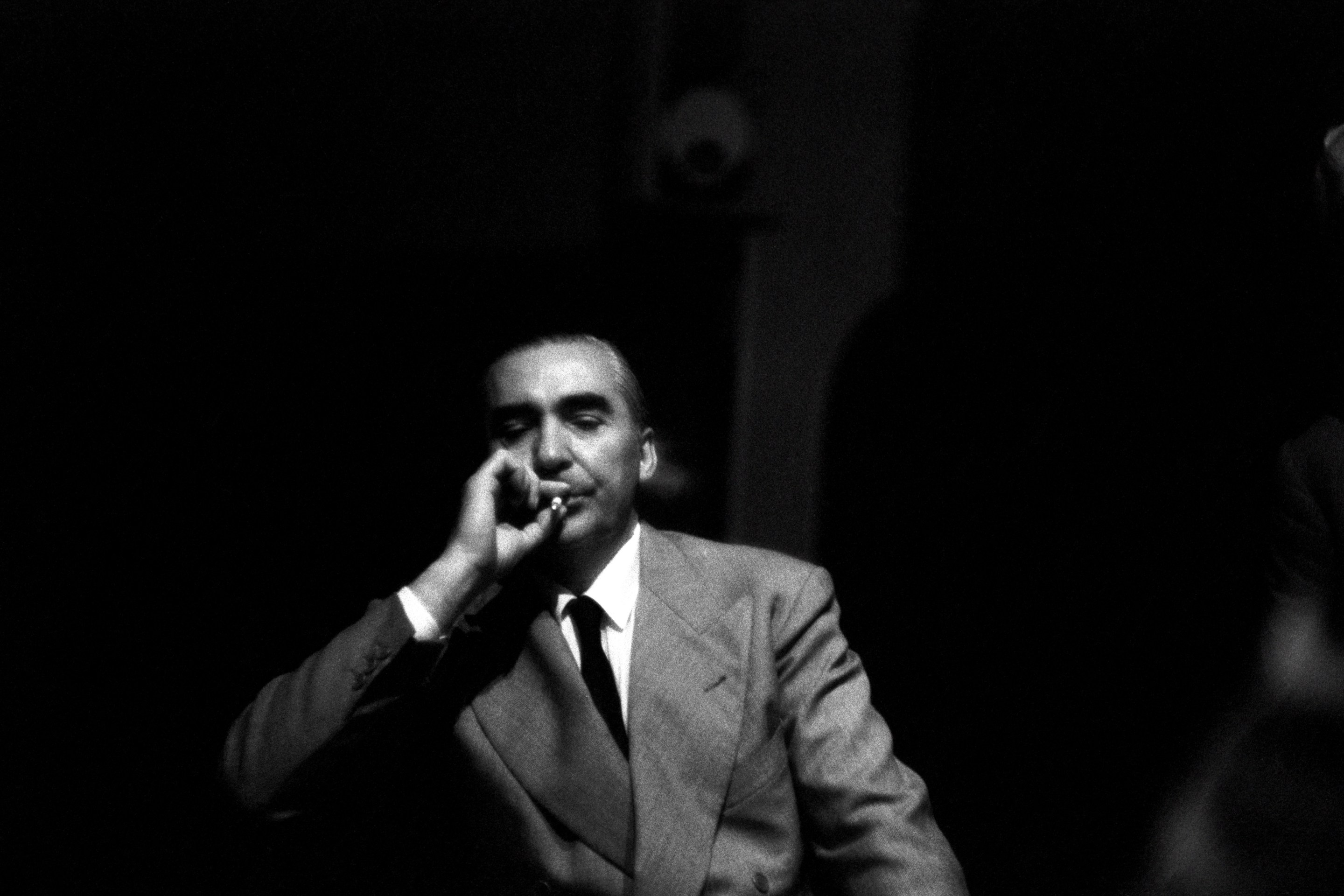Todd Golden smiled as the orange and blue confetti fell around him. He had accomplished what no Florida Gators men's basketball coach had in nearly two decades—a national championship—bringing a title home to a university and a fan base desperate for a win. (The last national championship for Florida in football or basketball came in 2008, just a year after Apple announced the iPhone.) All those years of disappointment later, the scene played out exactly as it was supposed to. Florida players hugged and cried. Fans screamed. The marching band blasted the university fight song. Play-by-play broadcaster Ian Eagle called out on the TV broadcast a slight twist on the phrase every Florida student learns: "It's a great day to be a Gator!"
And it was. The streets of Gainesville filled with jubilant students. The university's social media accounts boasted and bragged. Alumni young and old swelled with pride. All the years of losing, of coming up short, of watching other schools hoist trophies was swept away—as was any public memory of the two investigations involving two Florida basketball coaches: head coach Golden and one of his assistants, Gators legend Taurean Green.
Back in November The Independent Florida Alligator reported that Golden had been accused months earlier of sexual harassment and stalking in violation of Title IX, the federal civil rights law that banned sex-based discrimination in education. In January, ESPN reported that an athletics department employee filed a sexual assault complaint against Green, who won back-to-back national championships as a player with Florida before returning in recent years as a coach. A few weeks later, the university announced that "after a thorough investigation that included dozens of interviews," it had found "no evidence that Todd Golden violated Title IX." The investigation was officially closed.
And that was it. Well, except for the statement of support that Golden got from Florida athletics, which said that "throughout this process Coach Golden has demonstrated tremendous focus and professionalism, and we commend him for that. As the Gators move forward, we reaffirm our commitment to promoting a championship experience with integrity." And also the statement from Golden's lawyers, which said the closed case meant "the complaint was meritless." Anyone seeking clarification on what had the investigation uncovered, whether other possible violations beyond the scope of Title IX were explored, or what exactly Golden did got only silence in return, at least until that silence was replaced by the jubilation of a national championship run.
In theory, such a level of secrecy should be nearly impossible at the University of Florida, the flagship public university in a state with one of the oldest and most progressive public records laws in the country. But thank to a combination of factors—Florida's unlikely setup for its independent athletics department, changes made to federal anti-gender discrimination rules under the first Donald Trump presidency, and the slow-turning gears of bureaucracy—that secrecy has prevailed.
The Title IX Complaints
Most of what's known about the investigation publicly is still based on that single Alligator report. It said that on Sept. 27, the university received a complaint saying that over a period of more than a year an undefined number of women had accused Golden of sexual harassment and stalking. The sexual harassment claim, per The Alligator, "cited unwanted sexual advances on Instagram, requesting sexual favors, sending photos and videos of his genitalia while traveling for UF, and various occasions of stalking." The document said that more than once Golden took photos of the women while they were walking or driving then sent the photos to them, and he would show up places where he knew the women would be.
The Alligator also spoke with two women about Golden's behavior. One, a former UF student, said Golden talked to her in person "more than 10 times" and sent her unsolicited photos of his genitalia, including while the men's basketball team was traveling. The behavior started out as merely creepy, she said, before ramping up to dick pics.
"At first, it starts off slow, like, 'Oh, wow. That’s odd. This guy is showing us attention,'" the first woman told The Alligator. "And then it becomes, 'Wow, he’s kind of crossing a line. No, he didn’t mean it that way.' Then it’s, 'Wait, he's fully stepping over that line.’ And then it's, 'Wow, there’s a picture of his dick.' It was a full grooming process with all of us."
The second woman told the publication that Golden "sent us all the same shit. It was copy-paste to every girl."
A day after The Alligator story, Golden put out a statement. It said nothing about what was in the Title IX complaint or what the other two women had said. Instead, it just noted that Golden had been participating in "an ongoing school inquiry" and had retained a lawyer to advise him about if he could file a defamation lawsuit.
That was on Nov. 9. Barely any new details about the investigation have come out since. Defector Media also sent a list of questions about what happened to UF's media relations department. UF spokesperson Steve Orlando replied saying they had nothing to add to their initial statement. Defector filed public records requests with Florida back in January in regards to the investigation, including just asking for a copy of the Title IX complaint that The Alligator already had. Those requests are all still stuck in the "processing" queue. (Surely other reporters have filed similar requests and, like Defector, are stuck waiting.)
Attorney Karen Truszkowski, who represents one of the women in the Title IX case, told Defector she couldn't say much either because "I don't know anything other than what's been put out publicly."
A similar silence has shrouded the investigation into Green, who played for the Gators during their back-to-back national basketball championships in the 2000s before returning to the men's basketball program in 2022. In January, ESPN reported that a UF athletics employee filed a sexual assault complaint against Green with the university's Title IX office. Specifically, the complaint said that Green set up a meeting with her, where he kissed her and tried to put his hands down her pants, ESPN said.
The silence around the Green investigation is connected to the fact that, so far, the case appears to be ongoing; Orlando told Defector "the law prohibits us from commenting on the existence or status of investigations." He added that UF "takes these matters seriously and conducts a thorough and deliberate process that ensures due process for everyone." But the inquiry involving Golden is closed. That should enable the university to say or release something, especially given the severity of what was said in the complaint, which included behavior that, in the past, would have been considered a clear violation of Title IX. But in Florida, like the rest of the country, that's not how Title IX works anymore.
The State of Title IX
In recent years, each president has sought to define what is and what is not a violation of Title IX. Under Barack Obama, the U.S. Department of Education issued its 2011 Dear Colleague letter telling schools and colleges that they needed to seriously investigate reports of sexual violence. But under the first Trump administration and Education Secretary Betsy DeVos, the scope of that mandate to investigate and prevent sexual violence became much narrower.
When Joe Biden, who had served as Obama's vice president, became president, his Education Department moved to change the Title IX rules again. But multiple states, including Florida, sought to block that version in court and never adopted them. A federal judge in Kentucky struck them down about a week before Trump's second inauguration, after which the Education Department, now with former wrestling executive Linda McMahon in charge, said schools and universities needed to go back to the original Trump rules.
Elizabeth Tang, senior counsel at the National Women's Law Center, said those Trump rules, among many changes, narrowed Title IX's scope and gave educational institutions a lot of ways to close an investigation even if it included behavior that sounded like sexual harassment or credible evidence of sexual assault. For example, Tang said, schools are now required to dismiss a complaint if it is made by a person who is not participating or attempting to participate in school programs when they file the complaint, even if they were at the school when the incident happened. Schools also can dismiss a complaint if what happened occurred off campus and not during an educational program or activity, she said, but that does include some exceptions.
This gets even more complicated when behavior takes place over social media, when a person's exact location isn't obvious. Additionally, schools can take action if an off-campus incident happened when the school had "substantial control" over the respondent and the incident, but that leads to a discussion of what is substantial control.
As Tang put it, "There's a lot of fine print in the Trump rules." And if a complaint is missing a single element of the more stringent definitions, it must be dismissed.
Courts already had handed down rulings making it difficult for students to sue their universities for violating Title IX, Tang said. What the Trump rules did was import those tough litigation standards and bring them into schools' Title IX processes as well. Taken together, Tang said, this creates a legal framework where it's easier for a person accused of rape to successfully sue their school for a faulty Title IX investigation than it is for a rape survivor to sue their school for violating their rights under Title IX. And schools know this. As Tang said, "They're certainly incentivized to favor respondents over complainants."
There is also the ongoing gutting of the Education Department, the federal agency in charge of overseeing Title IX; the part of the agency that enforced anti-discrimination policies that include Title IX has specifically been targeted with layoffs and office closures. At UF, the Title IX coordinator who is taking the report might not even be on campus; the university outsourced its Title IX compliance, as well as disability compliance, last year to California-based Grand River Solutions. The woman currently listed online as Florida's interim Title IX coordinator says on LinkedIn that she's based in the New York City area. Outsourcing Title IX work also became more common during the first Trump administration.
Was any of this a factor in the Golden case? Given that some of the reported behavior happened on Instagram and that the letter sent to the woman, per ESPN, said that the issue was there was no evidence of the behavior happening "within a university program or activity," it's quite possible. But to get more clarity, and to know definitively why the investigation was closed, the university would have to publicly release at least some records.
And that brings up another issue: As broad as Florida's public records laws are, they don't directly apply to Florida's intercollegiate athletics, because those are under something called the University Athletic Association, a separate and private nonprofit corporation that runs athletics on behalf of UF. It's been that way for decades.
The University Athletic Association
That Florida's intercollegiate athletics is run by a private corporation isn't a secret; it's also not something the university advertises. I know it because I worked at The Alligator when I was student at UF in the early 2000s, and it would come up in the newsroom; those of us who worked in news could put in public records requests about the administration or student government, but our colleagues in sports had to get leaks from sources. Does the average UF student or alum know this? Probably not. On its website, all Florida says is that the University Athletic Association "is responsible for the intercollegiate athletics program at the University of Florida" and that the athletics director responds to the president. The associated link takes you to FloridaGators.com, where the history section will tell you how many championships the Gators have won but not when the UAA was incorporated or why it runs athletics separate from the university.
The UAA was incorporated in 1929 amid UF president John J. Tigert's fundraising for construction of the football field. Today, it oversees all of Florida's intercollegiate athletics. Anyone looking for clarity, or even just an explanation as to why this is, won't get much from the UAA's financial statements, which just says it's a not-for-profit organization that runs intercollegiate athletics "for and on behalf of the University of Florida." Their mission, according to their own tax records, is to "provide a championship experience with integrity on and off the field for student-athletes and the Gator Nation."
As strange as this might sound, it is also completely legal. Florida state law allows for the creation of direct-support organizations, which can operate as booster clubs for sports or foundations for the university as a whole. People have been worried about these organizations and how they operate outside of the public purview for years. The Palm Beach Post wrote about the state's then-oversight board for colleges and universities worrying about them back in 1989. The issue came up again in 2008, when a UCF football player died during practice, and his parents sued the UCF athletics department. A jury said the parents should get $10 million, but the private corporation that ran (and still runs) UCF athletics successfully argued it was only responsible for $200,000 because it was an instrument of the state.
Before that Florida Supreme Court ruling, the Associated Press published a story on how the state's 12 public universities were all using private corporations to flout the state's Sunshine Laws. But none of this has led to significant reform. If anything, the setup is growing more popular with Florida State creating its own "Florida State University Athletics Association Inc." That organization's stated mission is equally vague: "to stimulate and promote education, health, and physical welfare of the students of Florida State University by providing financial support for the intercollegiate program at FSU."
This means that what might be a routine request at another public university—give me the basketball coach's emails—would be anything but simple at UF. Golden's contract isn't with UF, it's with the UAA, which lists him as an employee on its tax records. ESPN reported that the contract does include language about prohibiting romantic or sexual relationships with anyone affiliated with athletics, as well as stipulating that discipline could happen if Golden did anything that "has an 'adverse effect' or causes an 'adverse reflection,' on the reputation, mission and/or interests" of UF or athletics.
Will We Ever Know Anything?
The Golden and Green investigations are just two drops in an ocean of Title IX cases right now. Since taking office, the Trump administration has gutted what was an imperfect but still important piece of civil rights legislation in this country. Title IX gave girls and women equal access to all education, not just the courses and schools deemed appropriate. It also enabled the United States to become a women's sports powerhouse. Title IX meant a university couldn't just ignore when a student said she had been raped by another student. But now—with so many people in charge of enforcing anti-discrimination laws laid off, the current Education Department announcing a special task force dedicated to scenarios that barely exist while de-emphasizing what had long been its core duties, and Trump openly talking about shutting down the entire department—what little remains of Title IX is just another political tool for the administration.
So in some ways there's nothing special here, as bleak as that might sound. It's a tale as old as college athletics itself; Golden is not the first powerful coach to benefit from an environment in which concerns and complaints about sufficiently well-connected people just disappear. The mechanics of constructing this particular black box have changed over the years to keep up with the laws and social mores, but the result remains predictably the same. It's easier to sell the happiness of millions of alumni, who might feel a bit more inclined to part with some of their money due to that happiness, than it is the well-being of a young woman who said she was hurt. That's not a power dynamic that's exclusive to college sports, either.
What could be different? Perhaps Florida will finally respond to all those public records requests and not redact everything when it does. Doing so would suggest that Florida's administration—and not the UAA—are the people in charge. And maybe some people will believe that, until the orange and blue confetti falls again, and they forget.





